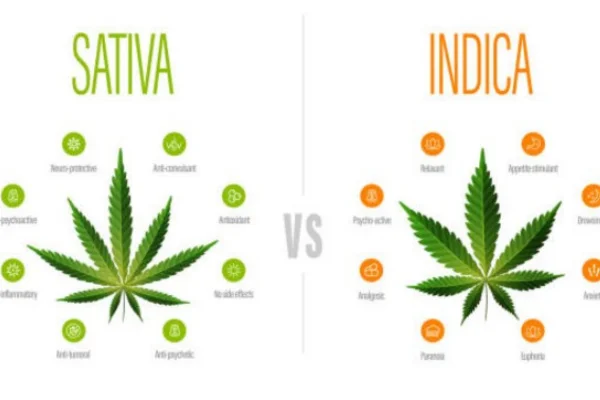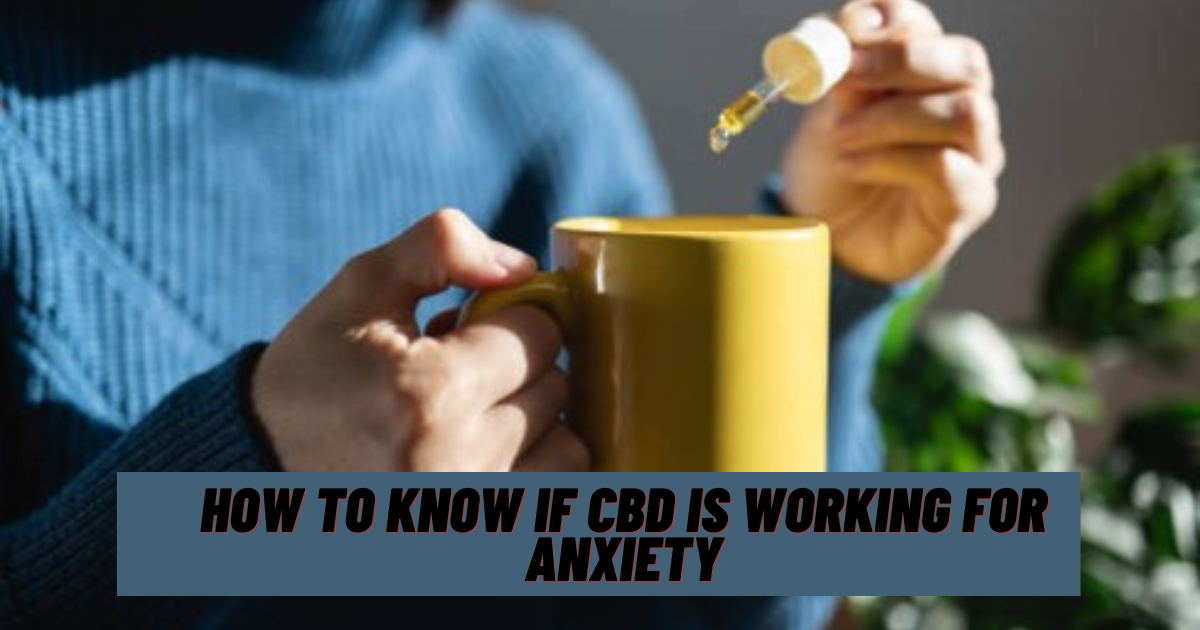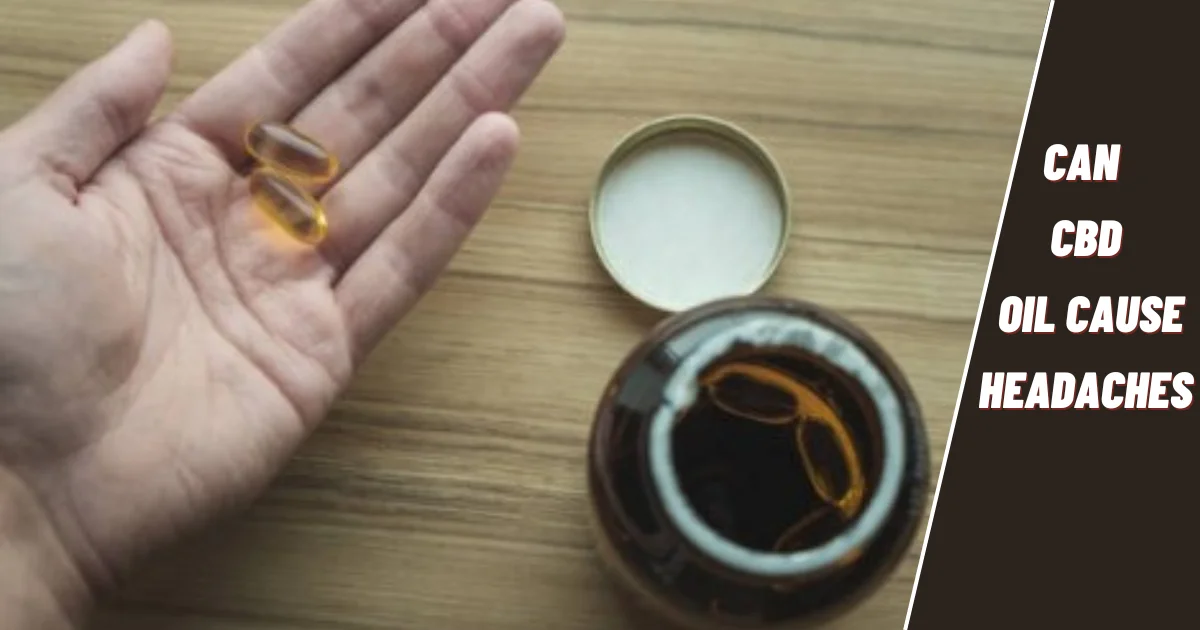Anxiety is an increasingly common condition that affects many people across the United States. It can be debilitating, making it challenging to go about your daily life and find relief from stress. With the growing popularity of CBD products, many individuals are turning to this natural compound as a potential solution for managing anxiety. But how can you determine if CBD is effectively working for your anxiety? Let’s explore the facts behind this question.
Learn about some common effects of CBD

When consumed, CBD interacts with the body’s endocannabinoid system (ECS), which is responsible for maintaining balance and regulating various functions such as mood, sleep, and appetite. CBD interacts with the ECS by targeting cannabinoid receptors in the body, potentially influencing the release of neurotransmitters and providing anti-inflammatory effects.
Changes in Anxiety Symptoms
One of the primary indicators that CBD may be working for your anxiety is a reduction in symptoms. Anxiety can manifest in various ways, including excessive worry, restlessness, irritability, and difficulty concentrating. As you incorporate CBD into your routine, pay close attention to any changes in these symptoms.
Keep a journal to track your emotions, stress levels, and overall well-being. Note any improvements in your ability to cope with stressful situations, enhanced focus, and decreased physical manifestations of anxiety. Over time, you may notice patterns and correlations between your CBD usage and anxiety symptoms.
Enhanced Sense of Calm
Anxiety often leaves individuals feeling overwhelmed and on edge. Many people have reported CBD to promote a sense of calm and relaxation. If you find yourself experiencing an increased feeling of tranquility and reduced stress levels after using CBD, it could be a positive sign that it is working for your anxiety.
This enhanced sense of calm can make it easier to navigate through daily challenges and contribute to an overall improvement in your mental well-being. Remember that CBD affects everyone differently, so it is essential to find the proper dosage and method of consumption that works best for you.
Improved Sleep Quality
Anxiety often disrupts sleep patterns, making getting a good night’s rest challenging. Lack of sleep can further exacerbate anxiety symptoms, creating a vicious cycle. CBD may help improve sleep quality, allowing you to wake up refreshed and ready to tackle the day.
As you begin incorporating CBD into your routine, notice any changes in your sleep patterns. Are you falling asleep faster, staying asleep longer, or experiencing fewer disruptions during the night? Improved sleep quality can be an encouraging sign that CBD positively impacts your anxiety.
Reduction in Panic Attacks
Panic attacks are intense episodes of fear and anxiety that can be frightening and overwhelming. For individuals who experience panic attacks, finding effective coping mechanisms is crucial. CBD has been suggested to provide relief from panic attacks for some individuals.
Notice a reduction in the frequency or intensity of your panic attacks after introducing CBD into your routine. It may be a sign that it is helping to manage your anxiety. Remember that CBD is not a cure-all, and it is essential to seek professional guidance if you experience severe panic attacks or worsening symptoms.
CBD improves Social Interactions
Social anxiety is a common form of anxiety that can make social interactions challenging. Individuals with social anxiety often experience fear, self-consciousness, and distress in social situations. CBD may help alleviate some of these symptoms, allowing individuals to feel more relaxed and comfortable in social settings.
Pay attention to how CBD affects your social interactions. Do you find initiating conversations, participating in group activities, or navigating unfamiliar social settings easier? Suppose CBD is helping you feel more at ease during these situations. In that case, it may be a positive indication that it works for your anxiety.
CBD’s Sustained Long-Term Benefits

While immediate relief from anxiety symptoms is essential, it is also important to consider the long-term benefits of CBD usage. CBD is not intended as a quick fix but rather as a tool for managing anxiety in the long run. Pay attention to any sustained improvements in your overall well-being and quality of life.
CBD has been suggested to have neuroprotective and anti-inflammatory properties that could contribute to long-term anxiety management benefits. Consistent and appropriate CBD usage over time may improve emotional resilience, stress management, and decreased anxiety levels.
Seeking Professional Guidance?
It is important to note that CBD is not a substitute for professional medical advice or treatment. Suppose you are considering using CBD for anxiety. In that case, consulting with a healthcare professional familiar with CBD is always recommended. They can provide personalized guidance, monitor your progress, and ensure CBD is safe to use alongside existing medications or conditions.
Additionally, a healthcare provider can offer alternative anxiety management strategies or suggest other complementary therapies that may work in conjunction with CBD. Creating a holistic approach to anxiety management can enhance the effectiveness of CBD usage and provide a more comprehensive solution.
Determining whether CBD is working for your anxiety involves careful observation and self-reflection. Look for improvements in anxiety symptoms, changes in your overall sense of well-being, and enhanced coping mechanisms. Note any changes in sleep patterns, panic attack frequency, or social interactions.
Remember that CBD affects each individual uniquely, and finding the correct dosage and consumption method may require some experimentation. Always prioritize seeking professional medical advice to ensure CBD usage aligns with your specific needs and circumstances.
By paying attention to these signs and seeking professional guidance, you can better understand whether CBD is effectively managing your anxiety and explore avenues to enhance your well-being in the long run. Remember to listen to your body and prioritize your mental health. You can find a solution that works best for you with patience and persistence.






